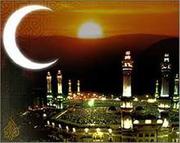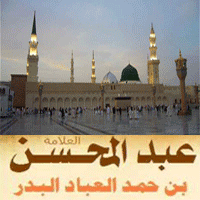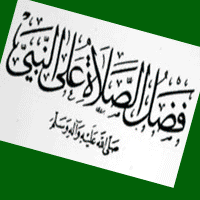مايو 2010
When there was a solar eclipse Prophet Muhammad (peace be upun him) rushed anxiously to the mosque and performed two rak`ahs. In the first he recited al-Fatihah aloud, followed by a lengthy recitation of the Qur'an. Then he made a long ruku`. Then he stood up from ruku`, saying,
He (peace be upun him) used to supplicate Allah for rain on the pulpit while delivering the Friday sermon and he also prayed for rain on other days. And he also prayed for rain while sitting in the mosque, raising his hands and supplicating Allah, the Mighty and Majestic.
His supplications for rain include:
"Allaahumm-asqi `ibaadaka wa bahaa'imaka wanshur rahmataka wahyee baladakal-mayyit."
(O Allah, provide water for Your servants and your animals, spread Your mercy and revive your lifeless land.)
If the enemy was in the direction of the Qiblah, he (peace be upun him) arranged the worshipers in two rows behind him. He (peace be upun him) said "Allahu akbar" and they repeated after him. Then they all made ruku` and rose up from it together. For prostration, the front row behind him prostrated while the back row remained standing facing the enemy. When the Prophet stood up for the second rak`ah the back row would make two prostrations, get up and advance to take the place of the first row, which would move back to take their place.
&The guidance of the Prophet (peace be upun him) in funerals was complete, unlike that of other nations. It included good treatment of the deceased, his family and relatives. Such care begins as early as visiting the dying person during his illness, reminding him of the Hereafter, advising him to write his will and repent, and asking those beside him at his death bed to encourage him to recite the testimony, "La ilaaha ill-Allah" (There is no god but Allah), so it will be the last words uttered by him.
a. His Guidance in Zakah
His is the most perfect guidance in all aspects of zakah: its timing, amounts, percentages, givers and recipients. It takes into consideration the interests of both the wealthy and the poor, taking from the rich an amount sufficient to meet the needs of the poor without injustice.
If he (peace be upun him) knew that someone was entitled to zakah, he would give him, and if he did not know his condition he only gave him after informing him that the rich and those able to earn their livelihood were not entitled to zakah.
a. His Guidance in Fasting Ramadhan:
of a witness. In caseAccording to his guidance he (peace be upun him) would only begin the fast of Ramadhan after a verified sighting of the new moon or the evidence it was not sighted and without a witness he would complete 30 days of Sha`baan.
If the new moon could not be sighted on the 29th of Sha`baan due to clouds, he (peace be upun him) completed thirty days of the month. He (peace be upun him) did not fast on the day of doubt, or tell anyone to do it.
a. His Guidance in Umrah
He (peace be upun him) undertook Umrah four times. They were:
1) The Umrah of al-Hudaybiyyah - The polytheists prevented him from reaching Makkah, therefore he slaughtered and shaved at the place where they stopped him, ending the state of ihraam.
2) The Umrah of compensation [for the first one], in the following year.
3) The Umrah joined with Hajj
4) The Umrah from al-Ju`ranah.
a. His Guidance About the Hadi
He (peace be upun him) offered sheep and camels as hadi and offered cattle on behalf of his wives. He (peace be upun him) offered a hadi at his residence as well as during his Hajj and Umrah.
It was his practice to garland sheep to mark them but not cut or brand them. When he (peace be upun him) sent a hadi from his residence, nothing permissible would be prohibited to him.
He (peace be upun him) used to make frequent supplication during the first ten days of Dhul-Hijjah, and he would direct people to repeat often "La ilaaha ill-Allah" (There is no god but Allah), "Allahu akbar" (Allah is Most Great) and "Al-hamdulillah" (Praise be to Allah).
******
The Prophet (peace be upun him) bought and sold, but he bought more than he sold after he was entrusted with [Allah's] message. He (peace be upun him) also leased and rented, appointed agents and was appointed as such, but he appointed more than he was appointed.
He (peace be upun him) purchased on cash and credit, he interceded and others interceded for him, and he borrowed with mortgage or without it.
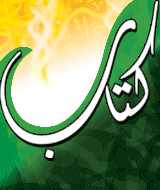

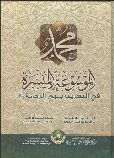
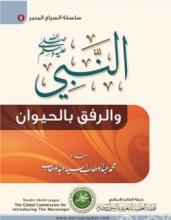
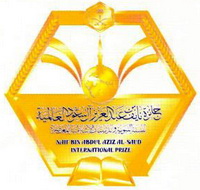

.jpg)
